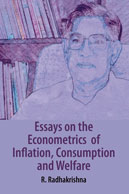New Releases...
Download Catalogue...
Download Excel Data
Download PDF Catalogue
You will get a Excel file with detail about catalogue.
You will get PDF file with detail about catalogue.
Detailed info...

Hard-cover • 2014
Pages: 134
ISBN: 9789332701069
INR 795
+ Add to Cart
Publisher:
Academic Foundation
Vulnerability and Risk Measurement of Climate Induced Disasters in Gujarat
Shital Shukla
About the Book
<p>Risk and vulnerability measurement is the first necessary step for any serious contemplation of disaster reduction strategies as well as climate change policies.</p>
<p> </p>
<p>Measuring vulnerability risk is an emerging technique which can systematically assess and analyse vulnerability and risk due to future possible climatic hazards. It can reveal many adverse effects which are led by climate induced disasters on society. Therefore, it helps state as well as society for preparing and adopting adequate and successful measures for reducing the risk factors. In other words, measuring vulnerability and risk can show direction for preventing losses. It leads towards preparedness to reduce recovery time rather than dependence on relief and reconstruction and can help decision-makers in prioritising their intervention for proactive disaster mitigation strategies and climate change policies. </p>
<p> </p>
<p>This book has assessed the pattern of climate induced disaster in Gujarat. It argues that disasters and develop-ment are mutually related. Disasters can create a setback in a process of development. At the same time, the type of development can increase or reduce the risk due to disaster. Therefore, the risk due to climate induced disasters also depends on vulnerability pattern on the state. This book has explored a regional model for assessing the pattern of vulnerability within the state by identifying the determinants of vulnerability existing in the state. It has finally provided the ways and means of integrating risk reduction strategies into development planning and climate change policies. </p>
Praise for this book
<p>This is a momentous study focusing on the importance of vulnerability analysis for assessing risk resulting from climate induced disasters.</p>
<p>Hence, it is enormously useful for policymaking for lessening the latent risk of potential disasters; and so would be extremely useful for geographers and policy makers. <br />
<strong>Rolee Kanchan</strong>, Professor and Former Head, Dept. of Geography, The M.S. University of Baroda, Vadodara.</p>
<p> </p>
<p>Comprehensive vulnerability and risk assessment are crucial in understanding the past, present and future consequences of climate induced disasters. The linkages between disaster management and development processes are not adequately emphasized in existing literature. The micro-level vulnerability and adaptation assessment can help communities to adopt within a system. Subsequently, the community can also recover from future disaster events under climate change scenario. In above context, the book by Dr Shital Shukla is praiseworthy effort taking Gujarat as a case study. <br />
<strong>R.B. Singh</strong>, Vice President, International Geographical Union (IGU) and Head, Department of Geography, University of Delhi, New Delhi.</p>
<p> </p>
<p>This book is an excellent proposal for reducing vulnerability by risk due to climate induced disasters. Gujarat in India is a local example for global changes. Work in local challenges produces global victories. Congratulation for a great book.<br />
<strong>Raúl González Herrera</strong>, Chief of the Natural Hazard Risk Reduction Division, Universidad de Ciencias y Artes de Chiapas UNICACH, Chiapas, Mexico.</p>
<p> </p>
<p>This micro-vulnerability analysis will help the researchers and policy makers. I am sure that this book will inspire many to carry out such analysis at the local as well as regional levels to mitigate the impact of disasters.<br />
<strong>V. Thiruppugazh</strong>, Commissioner of Rural Development & Secretary (Rural Development), Government of Gujarat.</p>
About the Author(s) / Editor(s)
<p><strong>Shital Shukla</strong> is Associate Professor (Geography), M.S. University of Baroda, Vadodara. She is also a faculty (on Lien) of Sardar Patel Institute of Economic and Social Research, Ahmedabad.</p>
<p> </p>
<p>She is PhD from Gujarat University and her doctoral thesis was entitled: Sustainable Development of the Coastal Region of Gujarat. Her areas of research interest are: natural resource management, climate change and disaster management, regional planning, human development, sustainable development and environmental planning. </p>
<p> </p>
<p>She is deeply involved in projects related to human development, sustainability and livelihood issues, climate change and disaster risk management and urban water disasters. She has presented many research papers in national and international seminars and conferences. She has worked with UNDP, DFID, International Cooperative Alliance, National Disaster Management Agency, National Institute of Disaster Management and Ministry of Human Development. </p>
Print Brochure...
Print as it is
Customised brochure
You will get a printout of what you see on your screen under 'Detailed Info'(Uneditable).
You will have the opportunity to edit the text and adjust the extent to fit on A4 size sheet or more accordingly as you desire. Plus, you can download the edited/customised Brochure or simply print it (CTRL + P).


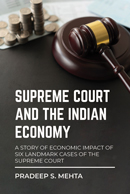



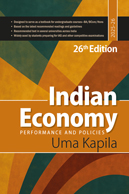
-web-194.jpg)
-front.jpg)
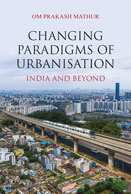






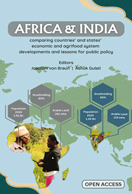

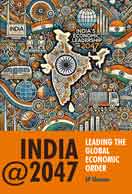
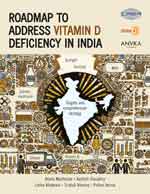

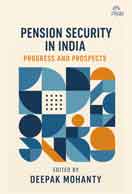
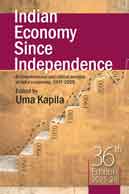

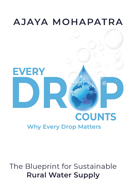


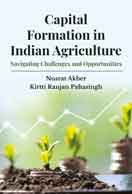











-COVER-web-194.jpg)





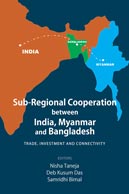










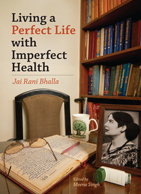













.jpg)






